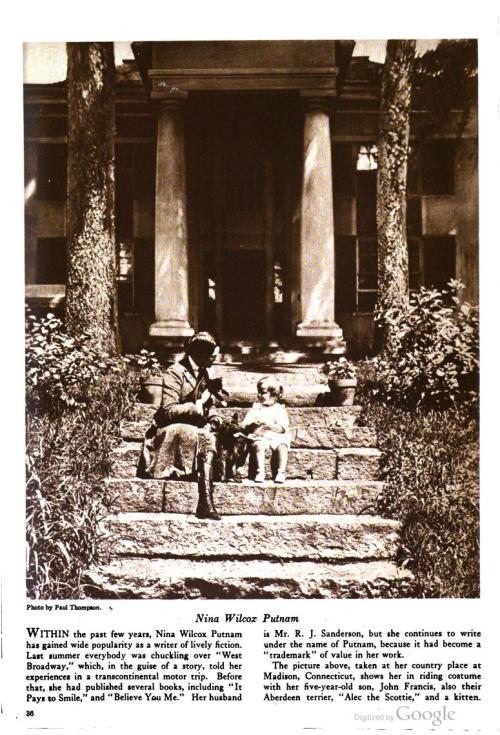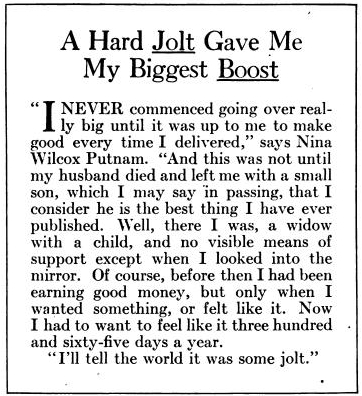From a 1922 issue of The American Magazine:
At Eighty-two She Manages a Plumbing Shop
Mrs. Laura M. Wright, of Belvidere, New Jersey, celebrated her eighty-second birthday by doing her usual work, which, as manager of a plumbing shop, consisted in taking calls over the telephone, seeing that the plumbers’ assistants left on time and arrived on time for their appointments, meeting customers and supplying their demands. Incidentally, she walked a mile to work in the morning, and walked a mile home at night. “I never,” she said, “miss my mile of oxygen.”
















